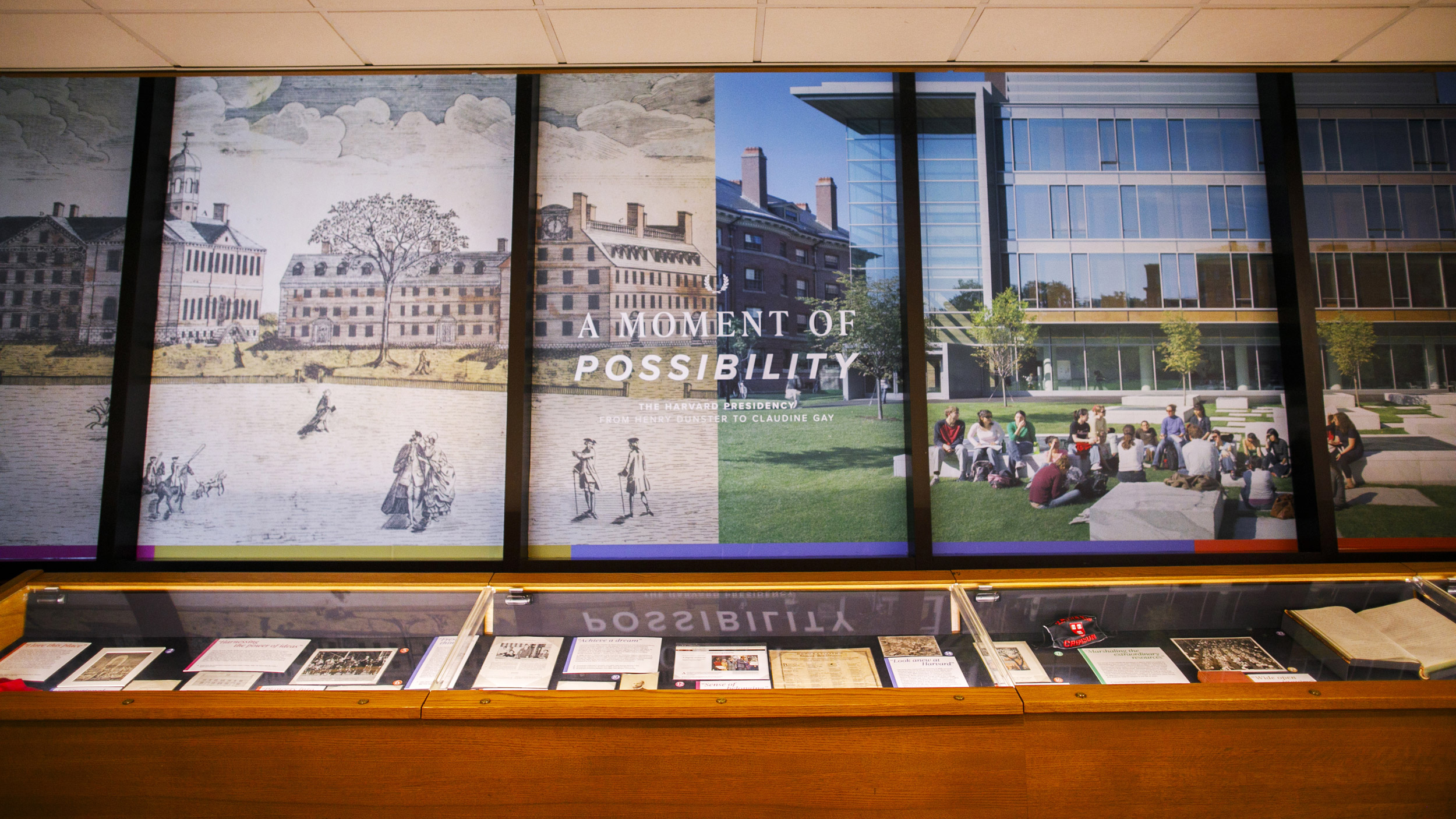Black Lives Matter has emerged as a powerful global movement that transcends national boundaries, resonating deeply with the struggles of communities everywhere, including Black Switzerland. In a new book entitled “Sounds of Black Switzerland,” music professor Jessie Cox explores the complexities of race and culture within a nation that often remains silent on issues related to Black identities. His work delves into the urgent need to recognize and confront anti-Blackness in Europe, integrating themes of Afrofuturism and cultural expression. By analyzing both contemporary music and historical texts, Cox aims to broaden the discourse surrounding Black lives, urging recognition of their significance and contributions. Through this exploration, he invites readers to engage with the myriad facets of Black experiences and the artistic possibilities they hold.
The idea that Black lives hold value resonates across borders and challenges communities worldwide to reevaluate their perceptions of race and identity. In the context of Jessie Cox’s enlightening work, we find a scholarly pursuit to illuminate the unseen and often overlooked narratives within Black Switzerland. This exploration not only highlights the harsh realities of anti-Black sentiments that permeate European society but also celebrates the rich cultural contributions of Black individuals. With a keen focus on Afrofuturism and contemporary art forms, Cox’s analysis provides a holistic understanding of race and culture, inviting a deeper conversation about inclusion and empathy. Ultimately, his text serves as a beacon for those looking to navigate the complicated landscape of racialized experiences and relationships.
Exploring Black Lives Matter in European Contexts
The Black Lives Matter movement has sparked a global conversation about race, and its impact extends far beyond the United States. In Europe, the discussions around race and cultural identity are complex and nuanced, particularly in countries like Switzerland, where Black voices have often been silenced or marginalized. Jessie Cox, through his book “Sounds of Black Switzerland,” aims to challenge this silence by highlighting the experiences and narratives of Black individuals in a predominantly white society. By placing the Black Lives Matter movement within the context of Switzerland, Cox illustrates the shared struggles against racism and anti-Blackness that permeate communities across the globe.
Cox’s work underscores the importance of recognizing and amplifying Black experiences in Europe, encouraging a shift in discourse surrounding race and culture. He explores how the principles of the Black Lives Matter movement can resonate within the Swiss context, pushing for a deeper understanding of racial injustices and encouraging solidarity among marginalized groups. By integrating the ideas of Black Lives Matter with cultural critiques and artistic expressions, Cox contributes to a burgeoning discourse that examines not only the challenges faced by Black individuals in Switzerland but also the broader implications of these challenges within the fight for social justice.
Jessie Cox: Bridging Race and Culture Through Music
Jessie Cox, as a professor of music, utilizes his artistic platform to explore and dissect issues of race and culture in his work. In his book, he intertwines the realms of music and social commentary, creating a rich tapestry that examines Blackness through an Afrofuturist lens. This approach not only highlights the struggles against systemic racism but also celebrates the creativity and resilience of Black communities. By analyzing contemporary Swiss artists like Nativ, Cox shows how music can serve as a powerful tool for advocacy and change, perfectly aligning with the themes of hope and progress found within Afrofuturism.
Cox’s exploration extends beyond mere reflections on anti-Blackness; he delves into the transformative potential of music as a vehicle for dialogue and healing. His teaching, reflected in courses such as “Music to Re-imagine the World: From Afrofuturism to Experimental Music Across Planet Earth,” encourages students to engage with these themes on a global scale. Through this lens, Cox aims to foster a deeper understanding of how race and culture intersect, ultimately enriching the artistic landscape and empowering future generations to envision more inclusive narratives.
Afrofuturism and Its Role in Rethinking Black Identity
Afrofuturism offers a unique perspective on Black identity, intertwining elements of science fiction, history, and fantasy to reimagine a future inclusive of Black voices. In “Sounds of Black Switzerland,” Jessie Cox draws upon Afrofuturism to challenge traditional narratives that often sideline Black experiences. This genre becomes a platform for exploring the possibilities inherent in Blackness, allowing for a broader discussion that transcends the limitations of Eurocentric viewpoints. By integrating Afrofuturist themes, Cox not only celebrates Black creativity but also critiques the systemic frameworks that seek to erase or diminish these contributions.
By framing Black identity within the context of Afrofuturism, Cox invites readers to consider alternative futures where Black lives matter fully and unequivocally. This imaginative exploration encourages a rethinking of societal structures, pushing against the boundaries of conventional understanding. The process of envisioning new worlds—free from oppression and filled with artistic expression—serves as a vital component of Cox’s work, fostering a message of hope and resilience that resonates not just in Switzerland, but globally.
Challenging Anti-Blackness in European Societies
Jessie Cox’s critical analysis of anti-Blackness in Europe is a timely and necessary discourse, particularly within the context of Switzerland. Through his comprehensive examination of the judiciary system, immigration laws, and societal attitudes towards race, he unearths the pervasive nature of anti-Black sentiment that often goes unaddressed. By spotlighting this issue, Cox aims to provoke thoughtful reflection and discussion on how these systemic barriers affect the lives of Black individuals and communities. His insights serve as a call to action for a much-needed dialogue on race and belonging in a country that often views itself as neutral.
Cox’s focus extends beyond mere critique; he highlights the importance of acknowledging and addressing anti-Blackness as part of a broader movement towards racial equality. He advocates for artistic expressions as avenues for confrontation and healing, allowing Black narratives to reclaim space in public discourse. By challenging the paradigms of color-blindness and erasure, Cox encourages a collective reckoning with the past, ultimately sowing the seeds for a more inclusive future where all Black lives matter.
The Cultural Significance of Black Swiss Narratives
The narratives of Black Swiss individuals remain largely overlooked in the cultural fabric of Switzerland. Jessie Cox’s work strives to illuminate these voices by documenting their stories and experiences within a local context that often marginalizes them. By showcasing the complexity of Black identities in Switzerland, Cox urges a reevaluation of what it means to be Black in a land where racial discussions are often avoided. He emphasizes that acknowledging these narratives is critical for fostering empathy and understanding in a society grappling with its historical ties to colonialism and racial discrimination.
As Cox articulates the unique cultural experiences of Black Swiss individuals, he also invites a dialogue over the broader implications of these stories within European cultural scholarship. By integrating facets of music, literature, and history, he positions Black narratives as essential components of Switzerland’s identity. This cultural significance paves the way for future generations to engage with and celebrate the diversity that exists within their communities, ultimately contributing to a more nuanced understanding of race, culture, and humanity.
The Influence of Music in Activism and Identity Formation
Music has served as a vital instrument in movements for social change, with Black artists often at the forefront of these efforts. In “Sounds of Black Switzerland,” Jessie Cox highlights the role of music in shaping identity and fostering activism within Black communities. He explores how various Swiss artists utilize their platforms to address issues of race and inequality, transforming their art into a form of protest and reflection. This expression through music becomes pivotal in defining cultural narratives, allowing for the reclamation of space in a historically Eurocentric landscape.
Cox draws parallels between the contemporary Swiss music scene and global movements like Black Lives Matter, emphasizing the collective power of sound in challenging societal norms. By analyzing the lyrics and messages within songs, he uncovers the layers of meaning that resonate with listeners, inspiring them to engage with the themes of justice, resilience, and identity. His work exemplifies the crucial intersectionality of art and activism, illustrating how music fosters connections that transcend geographical boundaries and cultural divides.
Reimagining Futures Through Artistic Expression
Jessie Cox champions the belief that artistic expression can act as a tool for reimagining futures and cultivating new relationships among diverse communities. In his courses and writings, he emphasizes the potential of art to not only represent marginalized voices but also to envision a world that transcends the oppressions of the past. By integrating concepts of Afrofuturism, Cox urges individuals to see art as a space for creativity, innovation, and radical possibility, which can ultimately contribute to a more just society.
His vision encourages a generation of artists to harness their creativity to inspire change and challenge existing racial narratives. By reflecting on the newly discovered meanings within the Black experience, Cox articulates a hopeful message that calls for the celebration of diversity while pushing against the constraints of tradition. In this way, artistic expression becomes not only a medium for storytelling but also a powerful catalyst for social transformation.
Understanding Swiss Identity Through a Racial Lens
Swiss identity is often perceived through a lens of neutrality and homogeneity, yet the lived experiences of Black individuals tell a different story. Jessie Cox’s work seeks to unravel this notion by diving deep into the complexities of race and culture in Switzerland. He challenges readers to confront their biases and to recognize the diverse identities that coexist within Swiss society. By elevating Black narratives, Cox compels a broader conversation about what it truly means to be Swiss in a society that grapples with its colonial past and contemporary racial dynamics.
Through his insightful analysis, Cox underscores that Swiss identity cannot be fully understood without acknowledging the experiences of its Black citizens. By shifting the focus towards inclusivity, he advocates for a more comprehensive understanding of Swiss culture that reflects its multifaceted nature. Ultimately, this exploration not only honors the voices of Black individuals but also enriches the overall narrative of what it means to belong in a country renowned for its diversity.
Cultural Resilience Against Anti-Blackness
Cultural resilience is pivotal in the fight against anti-Blackness in Europe, as demonstrated by the work of Jessie Cox. By documenting and celebrating Black culture in Switzerland, he highlights the strength and tenacity of Black communities in confronting systemic injustice. This resilience is often manifested through artistic endeavors, where creativity becomes a form of resistance and empowerment. Cox emphasizes that by reclaiming narratives and spaces, Black individuals can redefine their identities and challenge the dominant cultural paradigms that seek to impose silence.
Cox’s emphasis on cultural resilience further reinforces the idea that Black lives matter not just in response to systematic oppression but also in the celebration of Black existence. He argues that fostering spaces for Black voices is essential for collective healing and progress. By nurturing this resilience through art and community engagement, Cox envisions a future where Black individuals thrive, reinforcing the imperative to combat anti-Blackness through an appreciation of culture and identity.
Frequently Asked Questions
What does Black Lives Matter mean in the context of Black Switzerland?
Black Lives Matter in the context of Black Switzerland emphasizes the often overlooked experiences and histories of Black individuals in a country where racial discussions are limited. Jessie Cox’s work highlights the importance of acknowledging and addressing anti-Blackness in Switzerland while fostering understanding and appreciation for Black culture.
How does Jessie Cox address anti-Blackness in Europe in his book about Black Lives Matter?
In his book ‘Sounds of Black Switzerland,’ Jessie Cox examines anti-Blackness in Europe by discussing its roots in color-blindness and legal frameworks that marginalize Black identities. He emphasizes that acknowledging these issues is essential for understanding the full scope of Black lives and experiences in not just Switzerland, but across Europe.
What role does Afrofuturism play in discussions about Black Lives Matter according to Jessie Cox?
Afrofuturism provides a creative lens through which Jessie Cox explores the potential of Black identities and futures. By incorporating Afrofuturism into the discourse, he seeks to uncover imaginative possibilities and new relationships within Black culture, aligning these themes with the broader objectives of the Black Lives Matter movement.
How can music contribute to the Black Lives Matter movement as noted by Jessie Cox?
Music serves as a powerful medium for expressing and challenging systemic racism, as noted by Jessie Cox. By highlighting artists like Nativ and discussing works that confront societal issues, he illustrates how music can amplify Black voices and contribute to the ongoing fight for racial justice, aligned with the values of the Black Lives Matter movement.
What insights does ‘Sounds of Black Switzerland’ provide about race and culture in Switzerland?
‘Sounds of Black Switzerland’ by Jessie Cox provides critical insights into the race and culture dynamics within Switzerland, addressing the lack of discussion around Black lives. It serves to open dialogues about Black identity, anti-Blackness, and the richness of Black culture in a predominantly white context, reinforcing the significance of Black Lives Matter.
How does Jessie Cox connect his personal experience as a Black man to the broader themes of Black Lives Matter?
Jessie Cox connects his personal experiences growing up in Switzerland to the broader themes of Black Lives Matter by reflecting on his struggle to engage with Black identity in a racially indifferent environment. His work aims to bridge personal narratives with collective experiences of Black communities to foster empathy and understanding.
Why is it important to discuss race in non-urban areas like Switzerland as it relates to Black Lives Matter?
Discussing race in non-urban areas like Switzerland is crucial as it sheds light on the often invisible experiences of Black individuals in predominantly white spaces. This discussion is essential for acknowledging the unique forms of anti-Blackness that exist outside urban settings and promotes a comprehensive understanding of the Black Lives Matter movement globally.
| Key Point | Details |
|---|---|
| Exploration of Black Identity | Jessie Cox’s book ‘Sounds of Black Switzerland’ addresses the dynamics of race in Switzerland, where discussions about Black lives are minimal. |
| Cultural Appreciation | The book combines cultural appraisal with music criticism, exploring themes of Blackness and Afrofuturism. |
| Critique of Anti-Blackness | Cox discusses the relationship between color-blindness, erasure, and Switzerland’s judicial and immigration systems. |
| Inspiration from Music | Cox draws inspiration from various artists, including Nigerian Swiss composer Charles Uzor and rapper Nativ, to reflect on the Black experience. |
| Need for Diverse Perspectives | Cox emphasizes the importance of acknowledging diverse experiences to foster understanding and solidarity. |
Summary
The movement to affirm that Black lives matter is supported by thinkers like Jessie Cox, whose work highlights the complexities of Black identity in contexts often overlooked. By examining race in Switzerland through his book ‘Sounds of Black Switzerland’, Cox contributes significantly to the dialogue surrounding Black experiences globally, articulating both challenges and creative possibilities. His endeavor is a reminder that recognizing and celebrating Black lives in all their facets is crucial for creating a just society.



